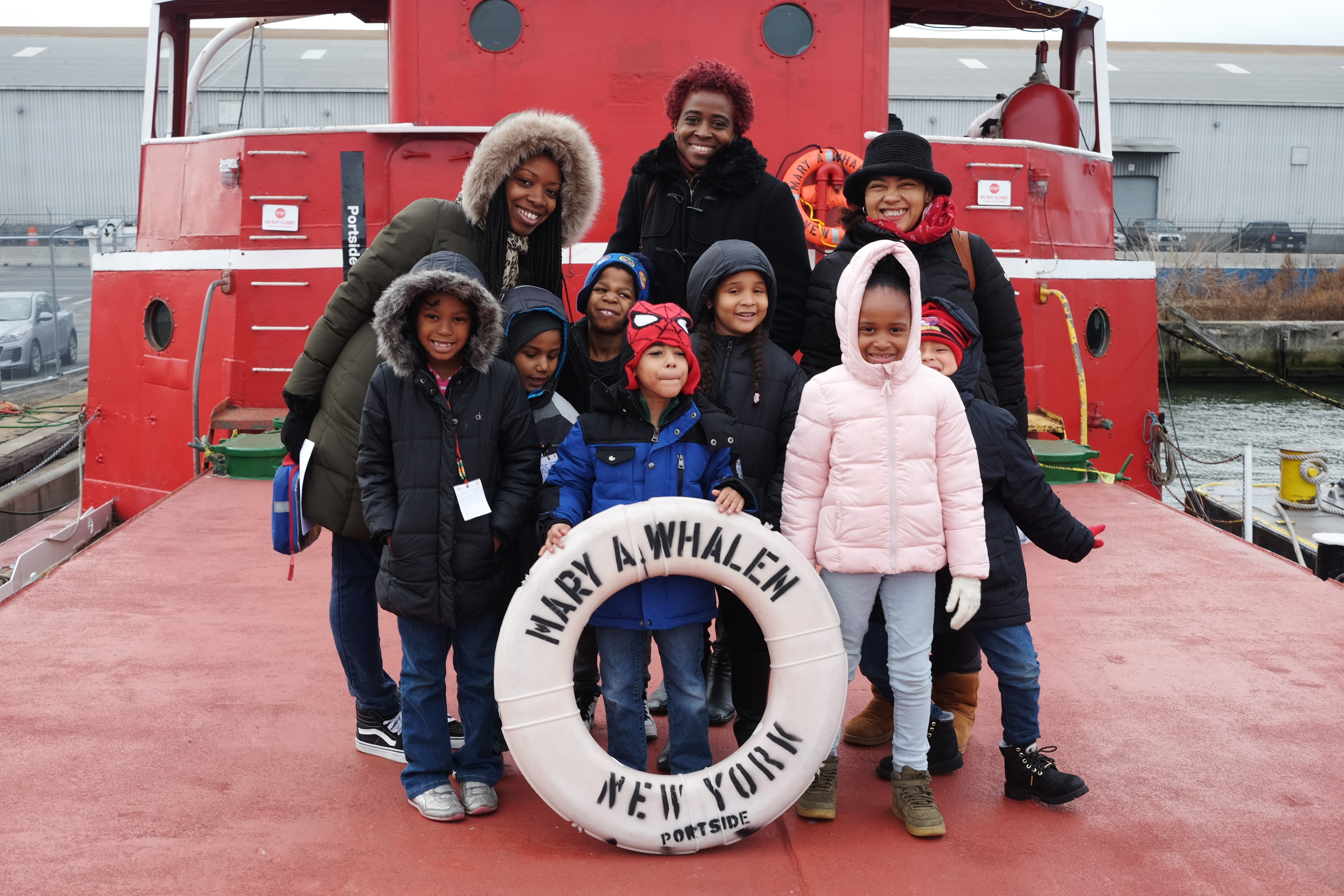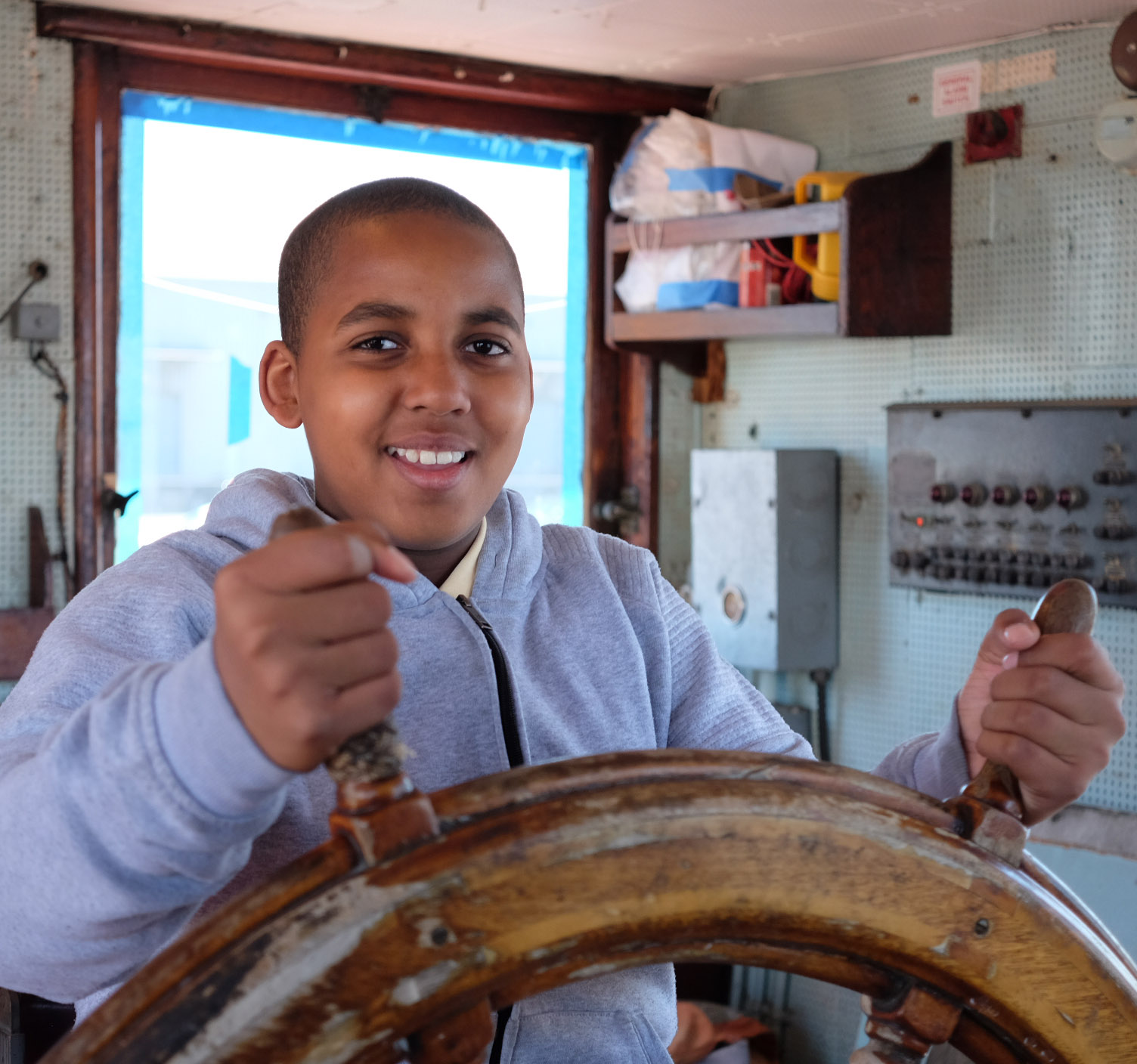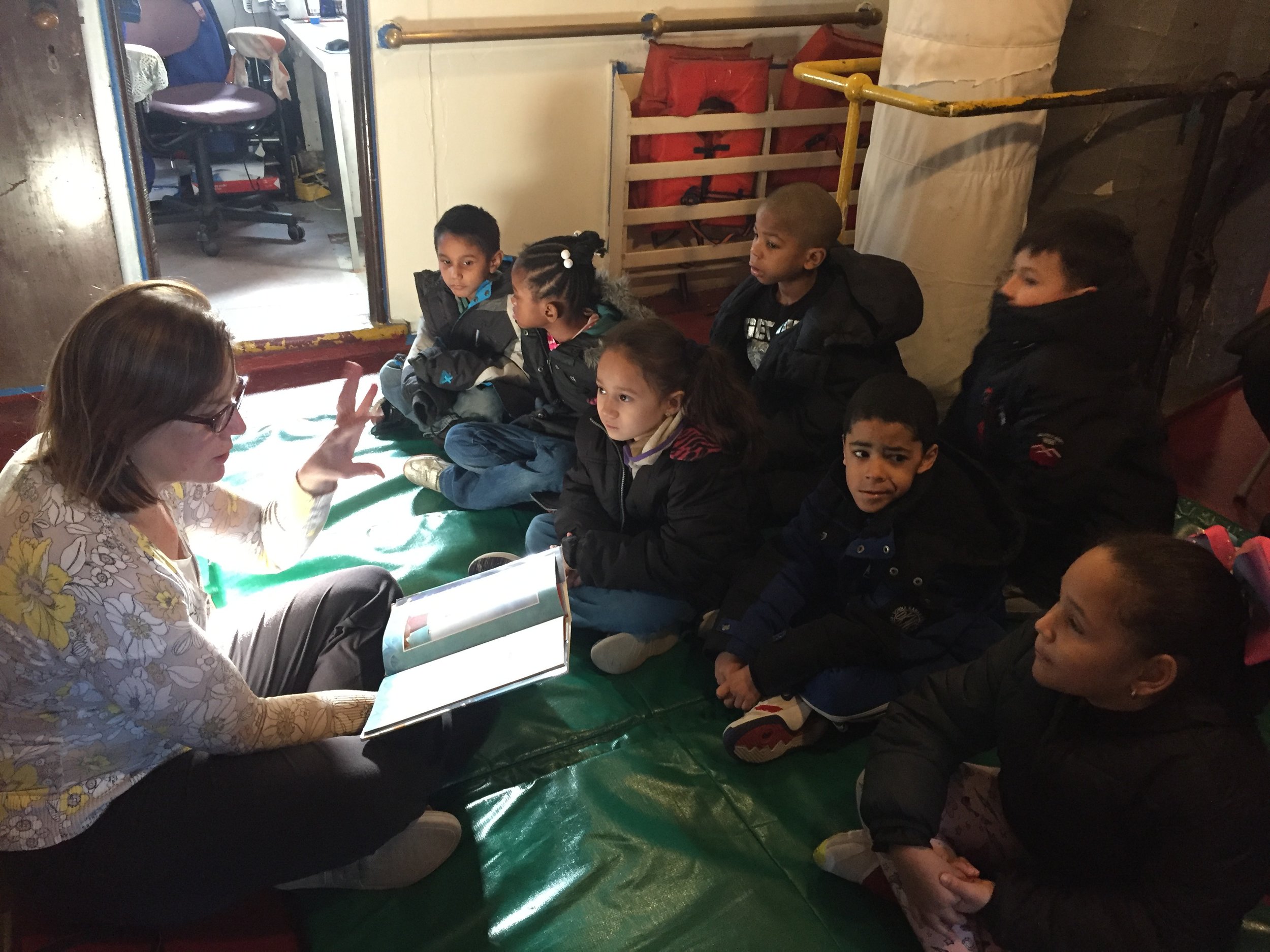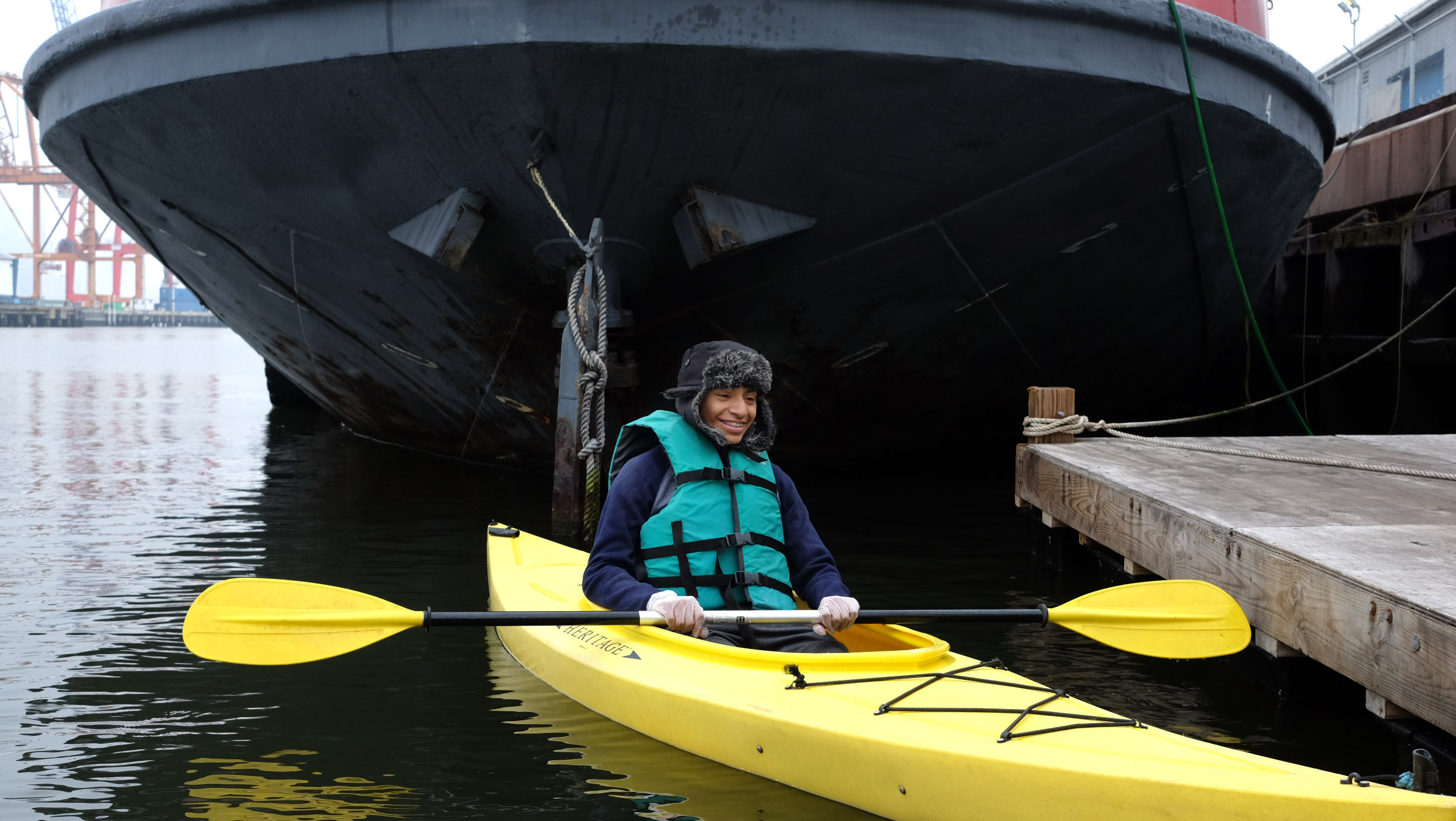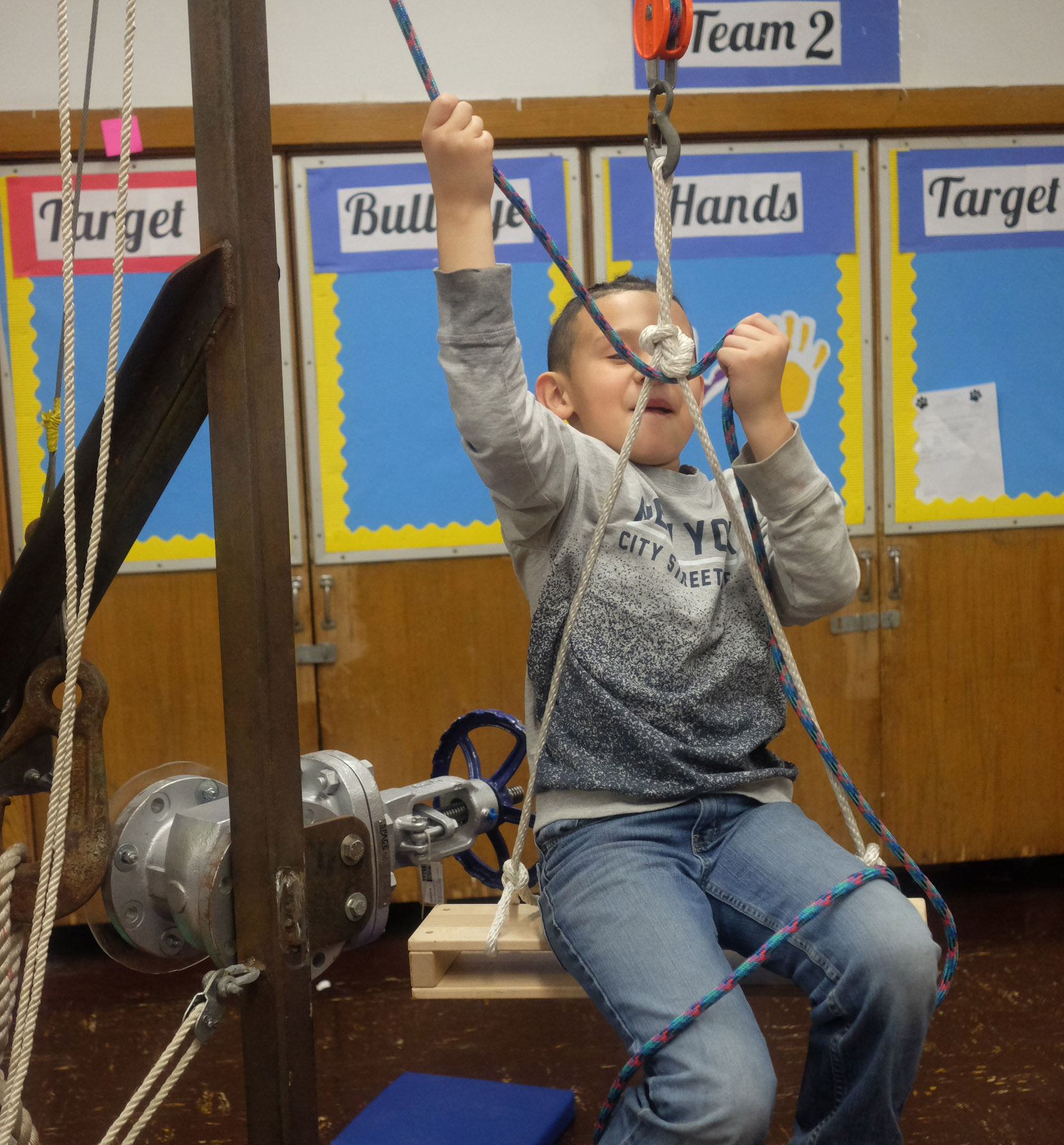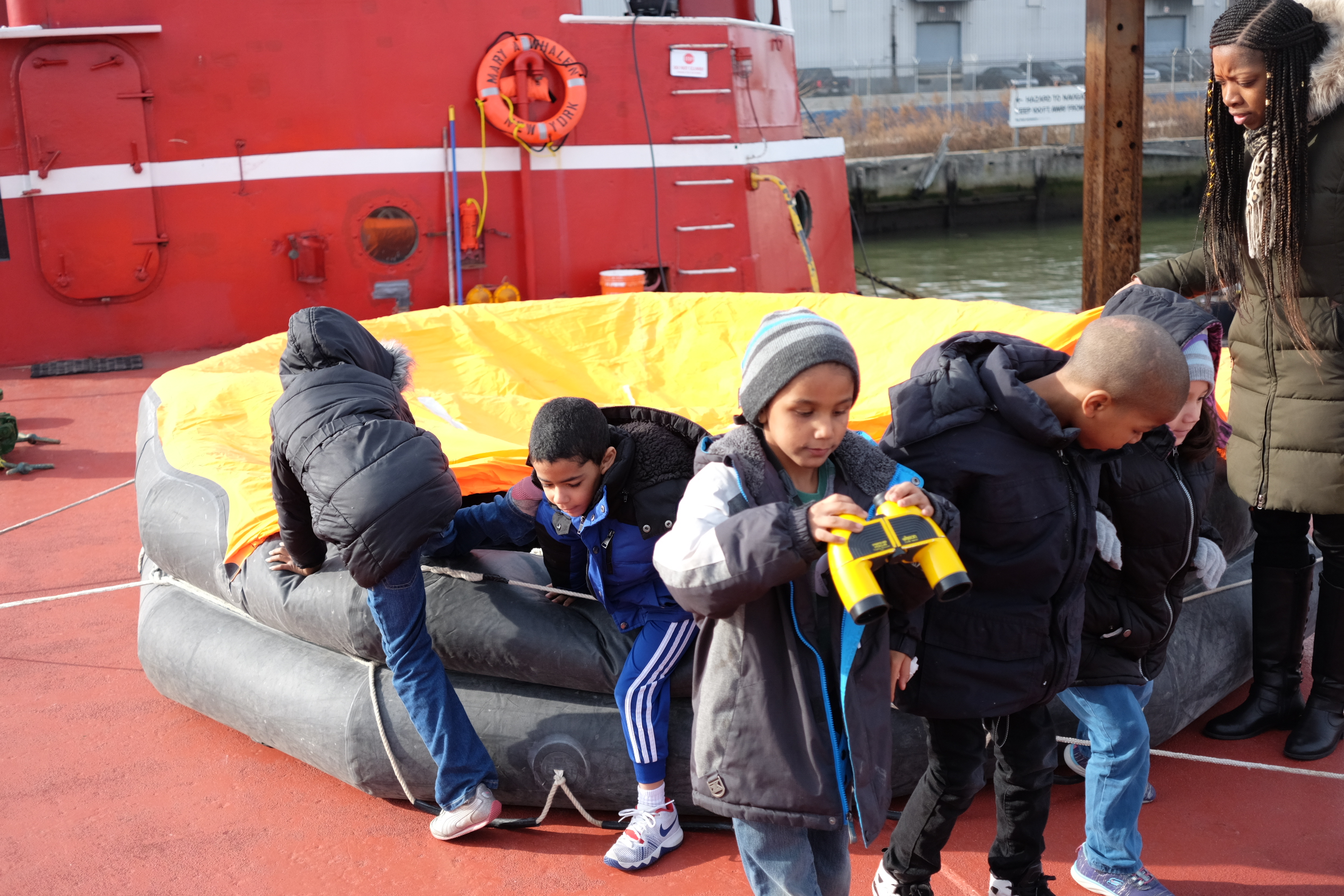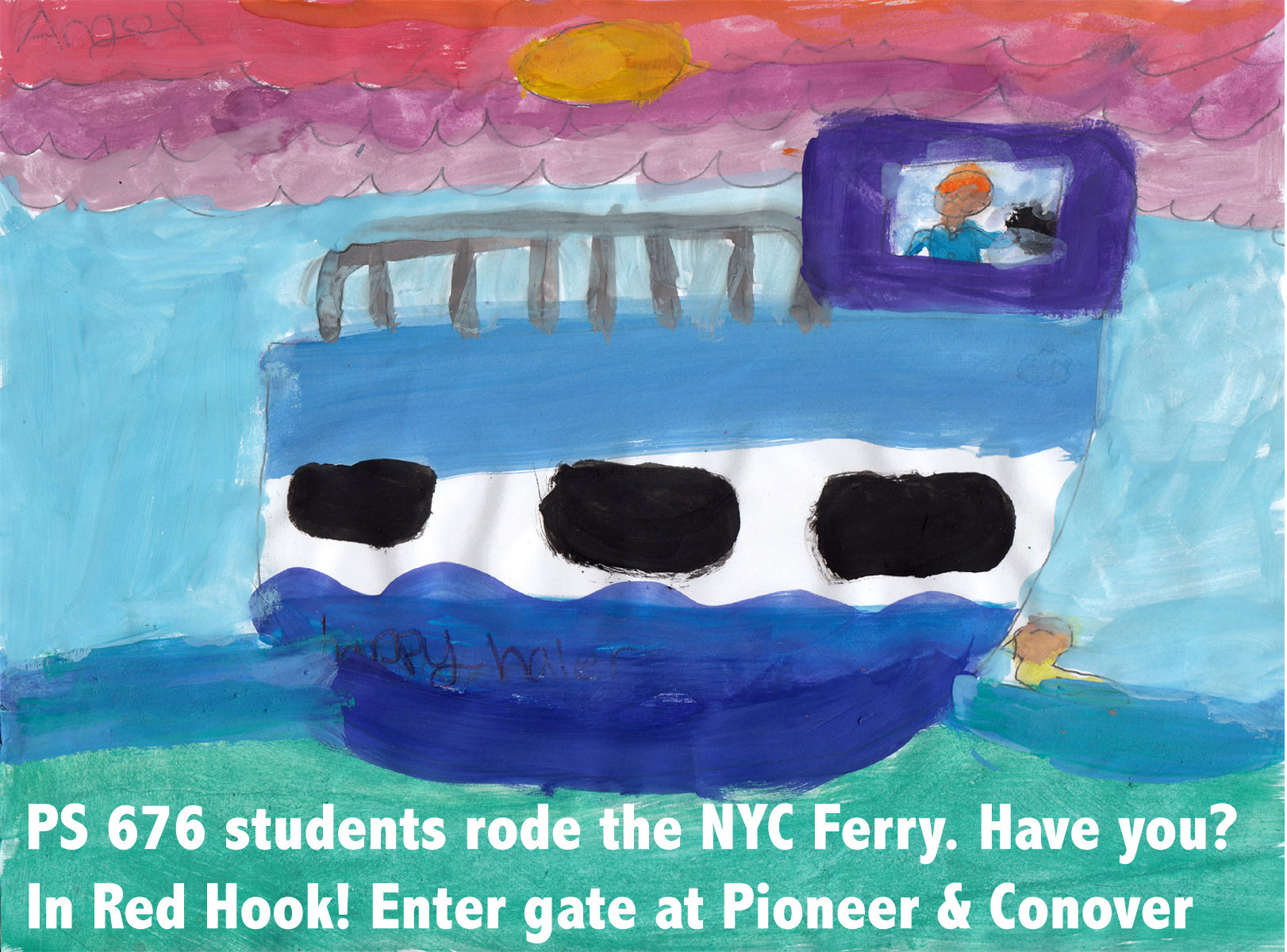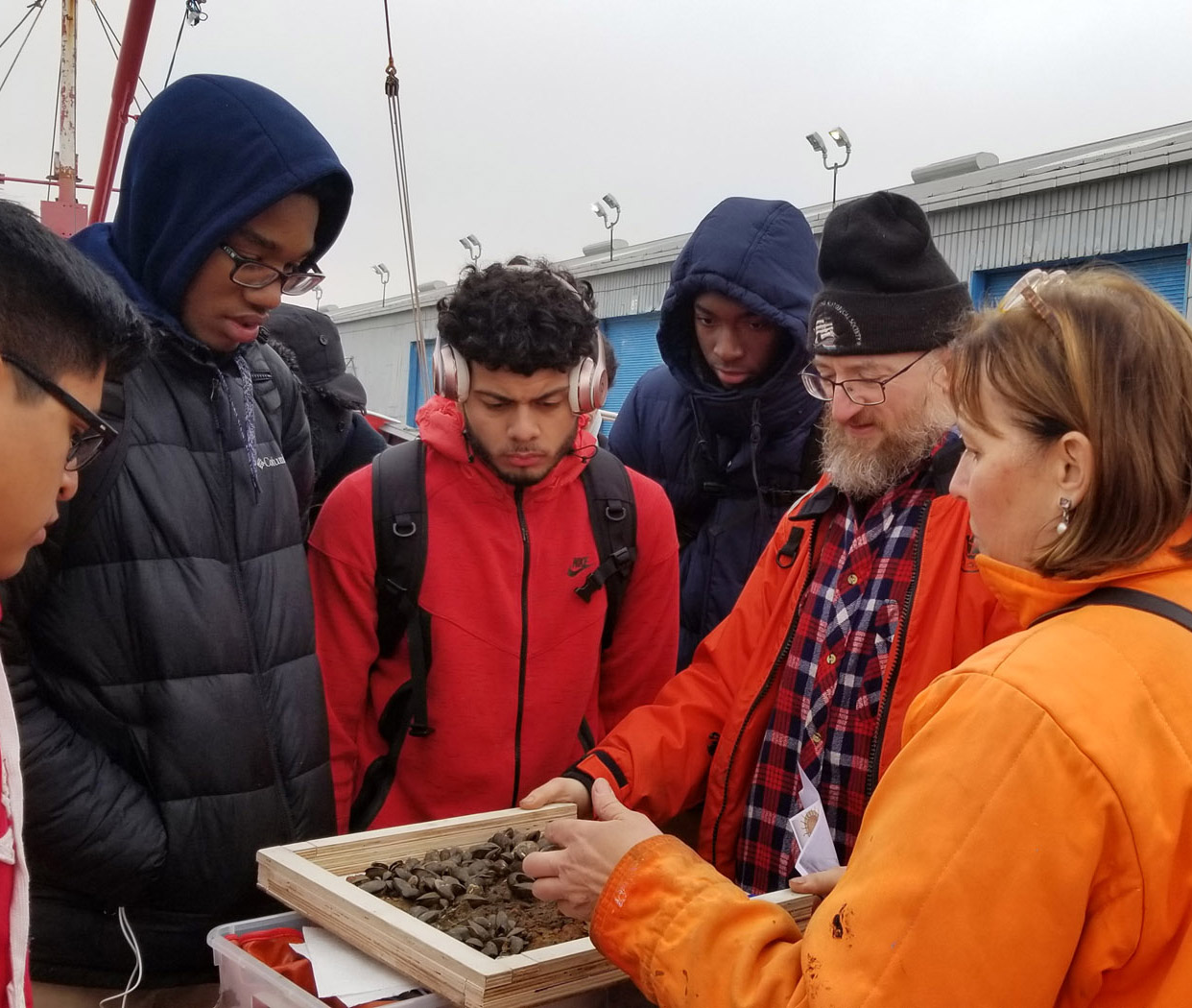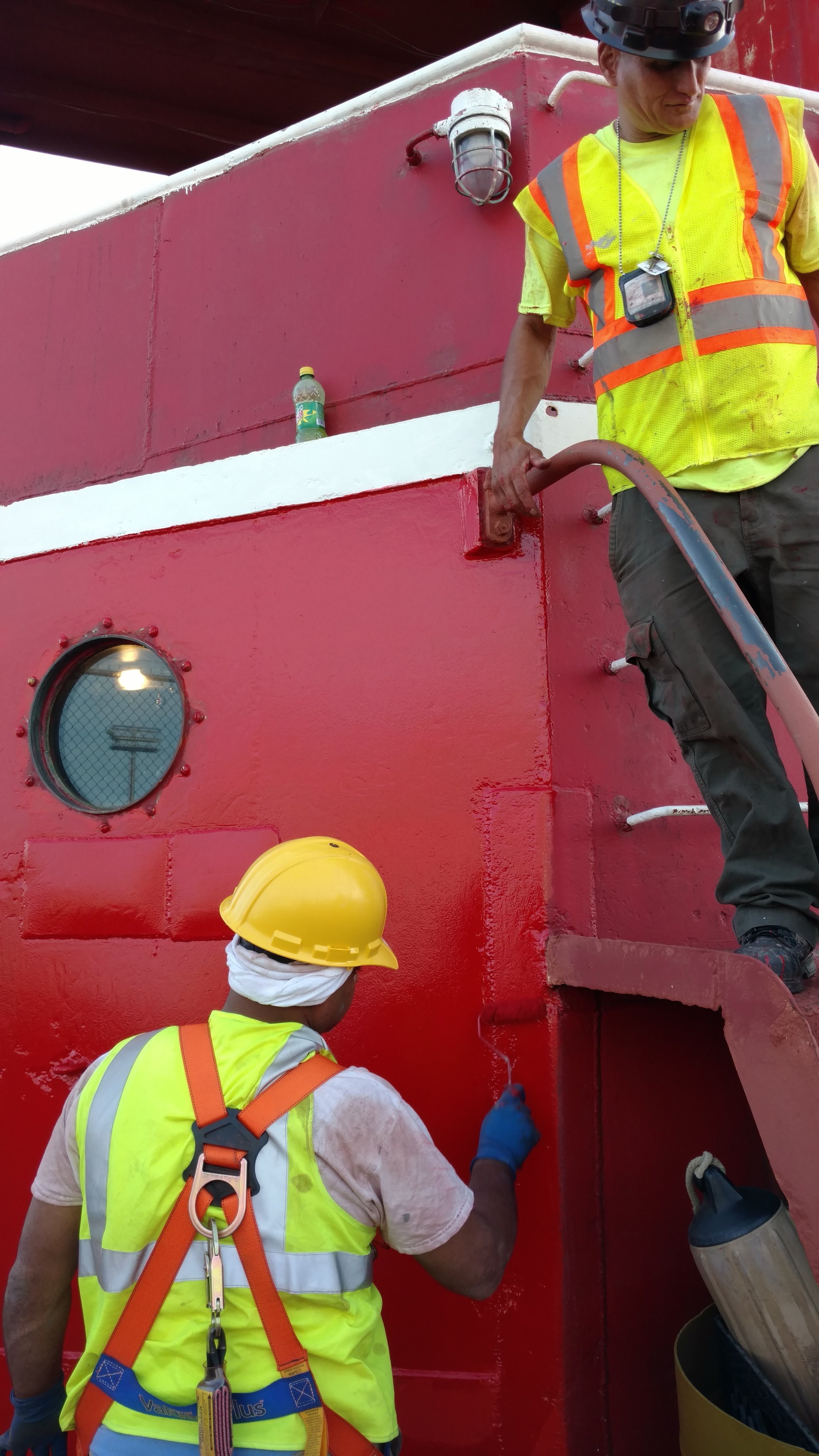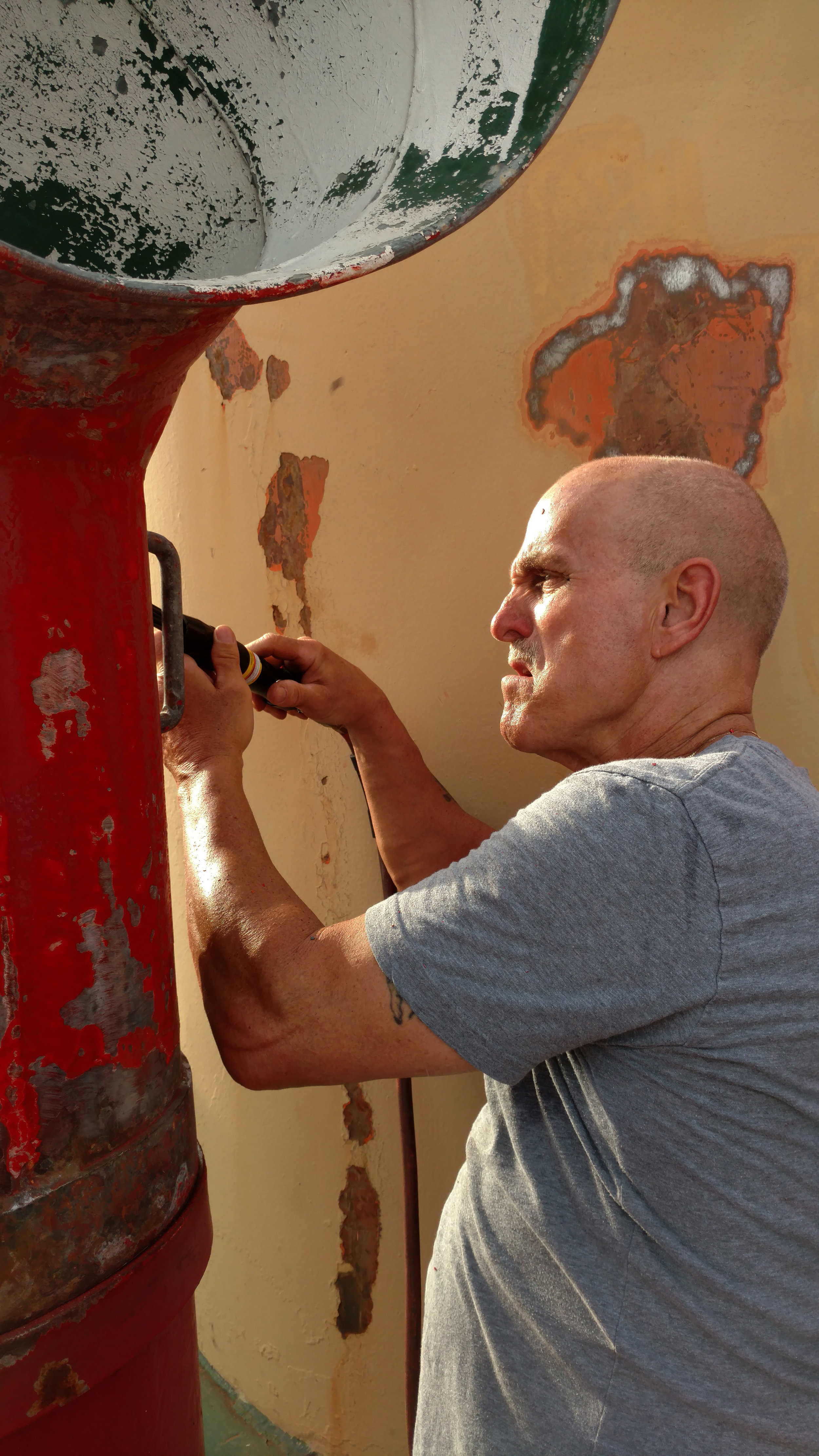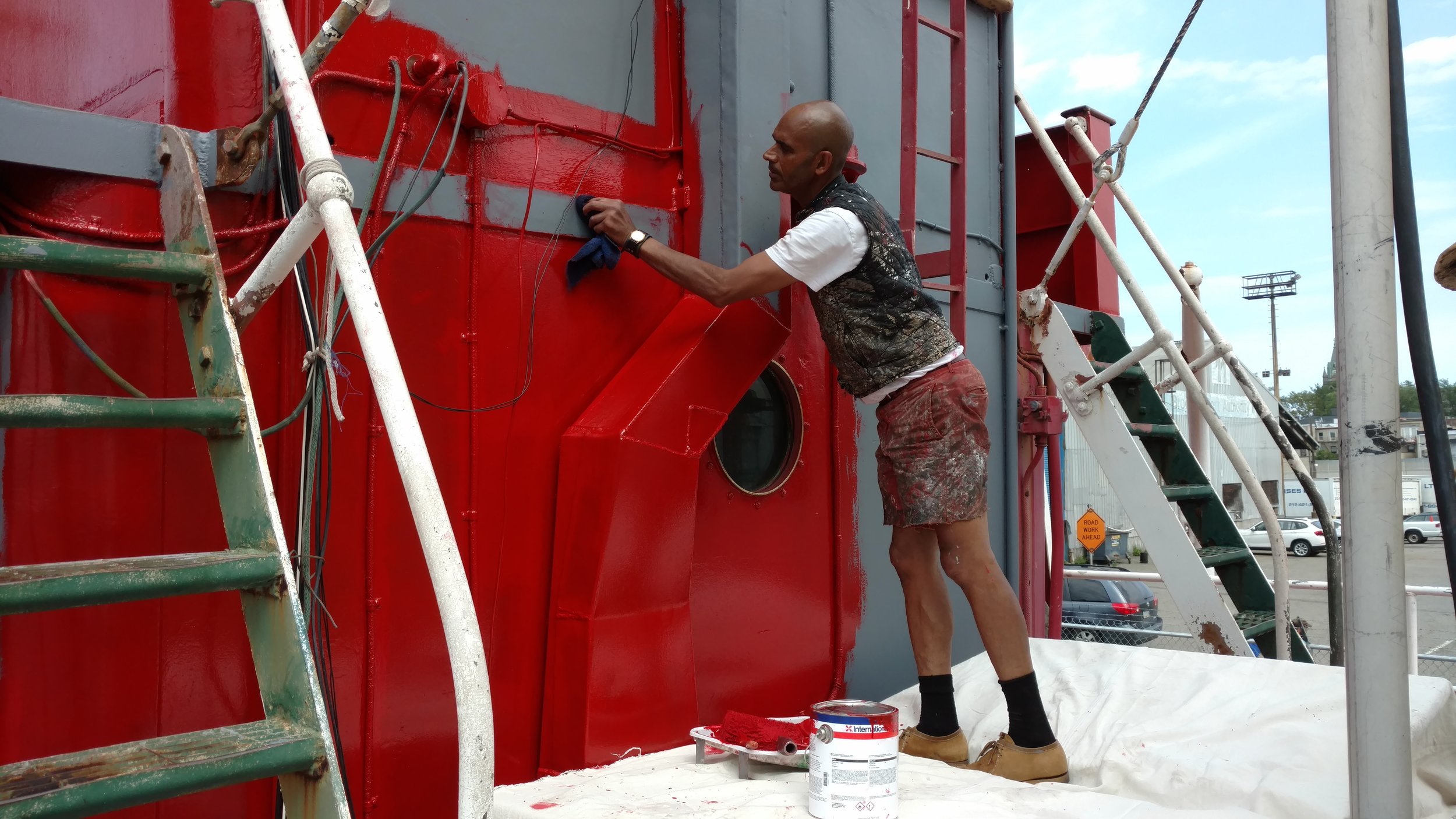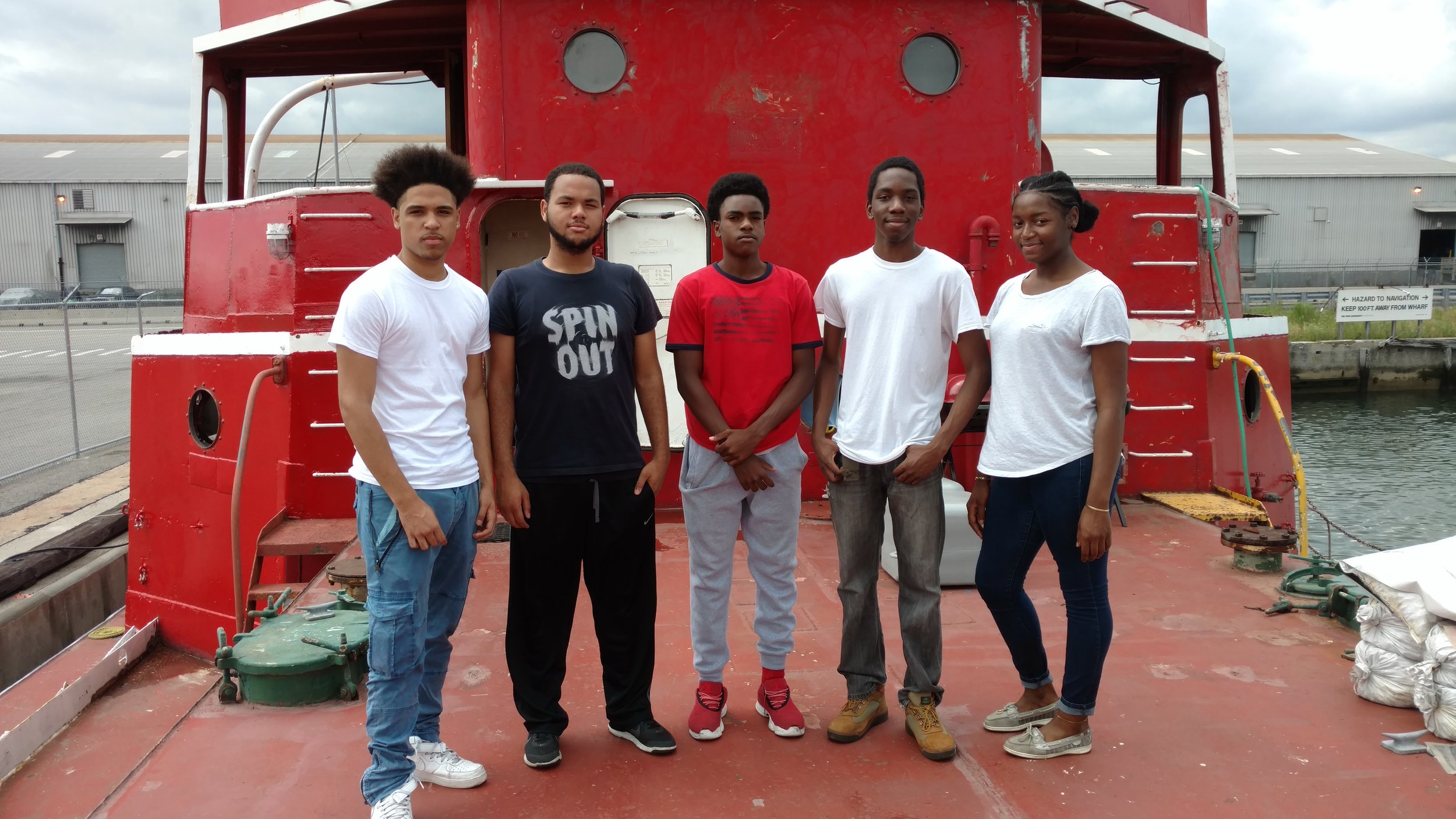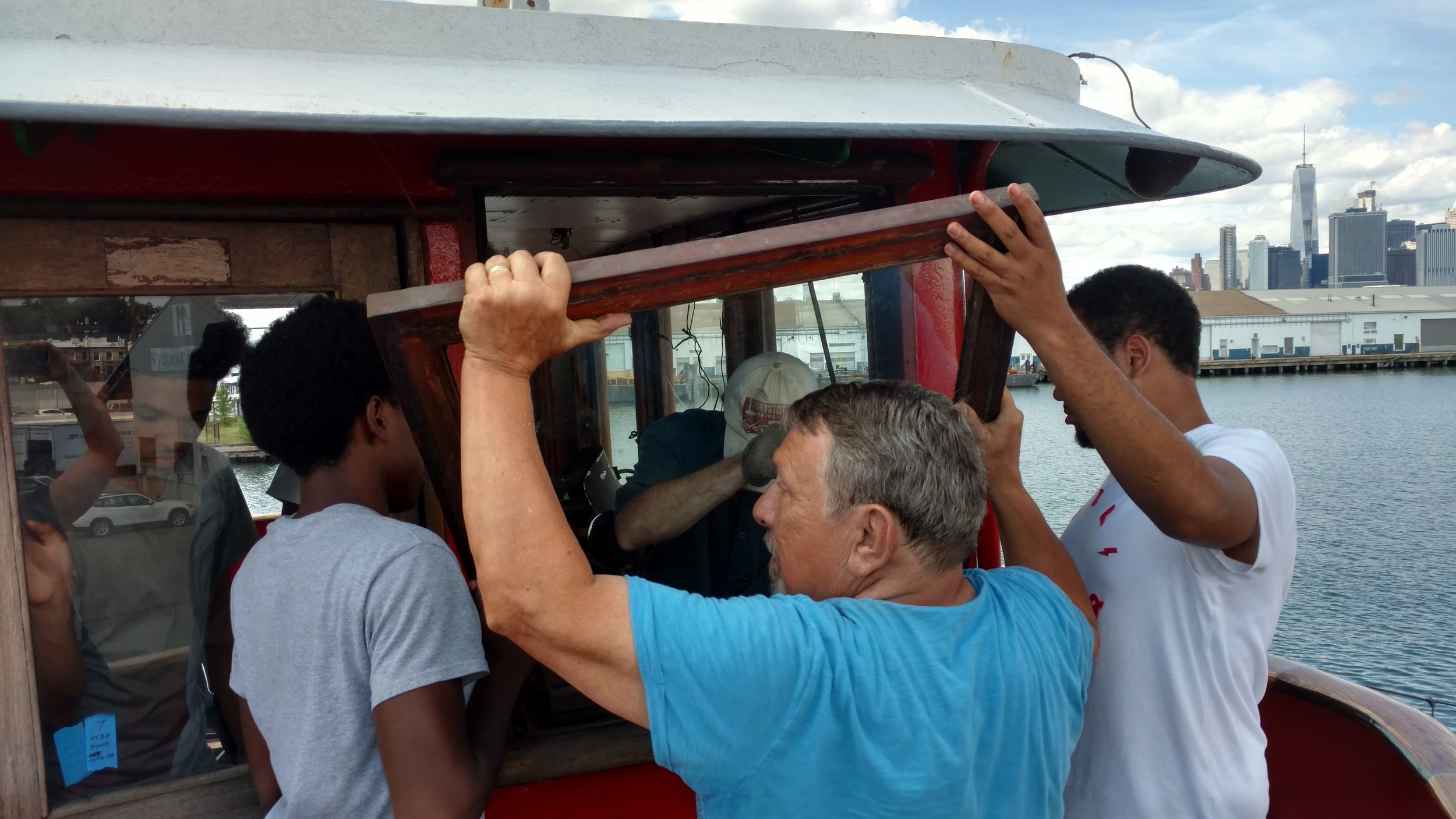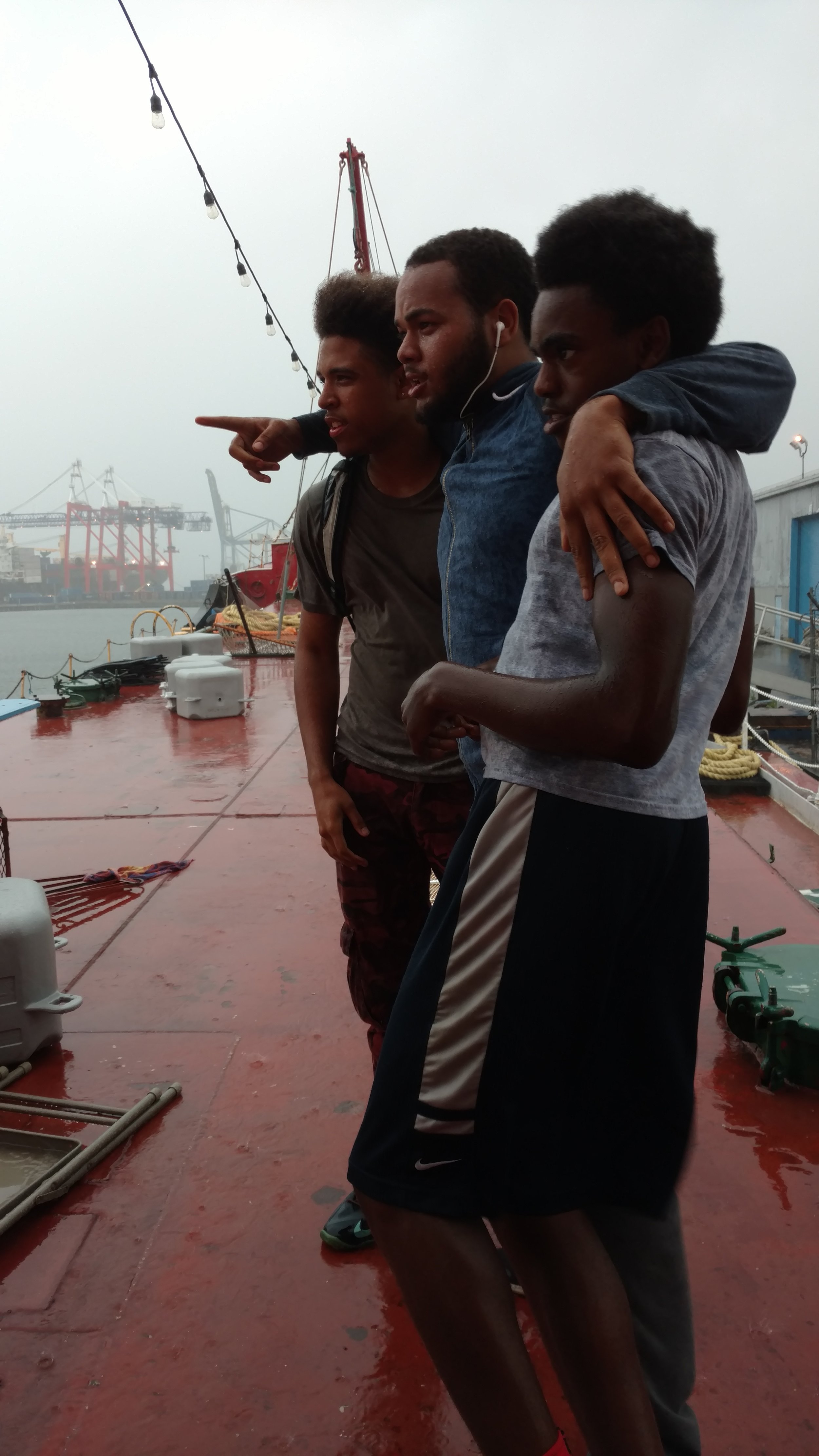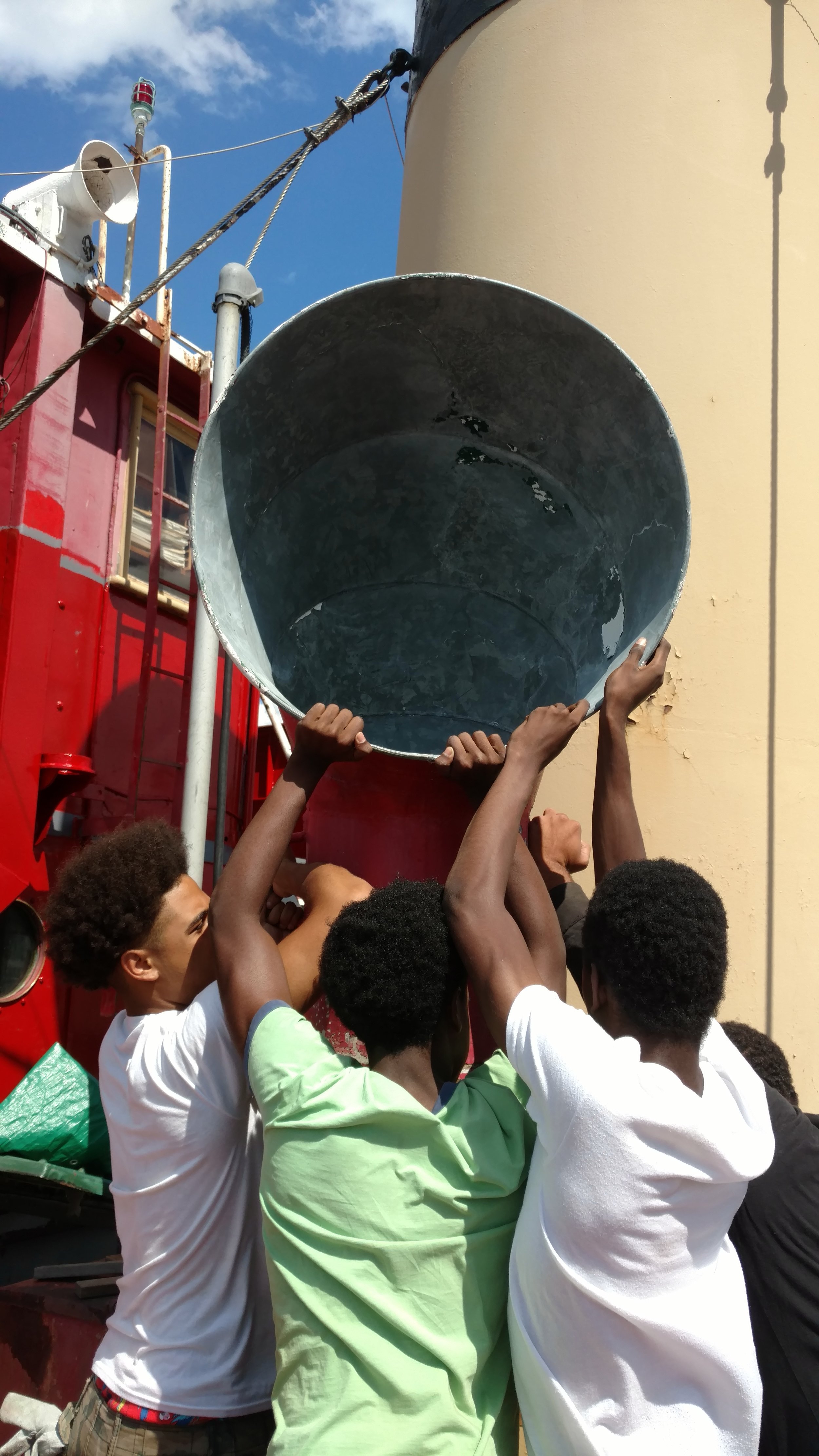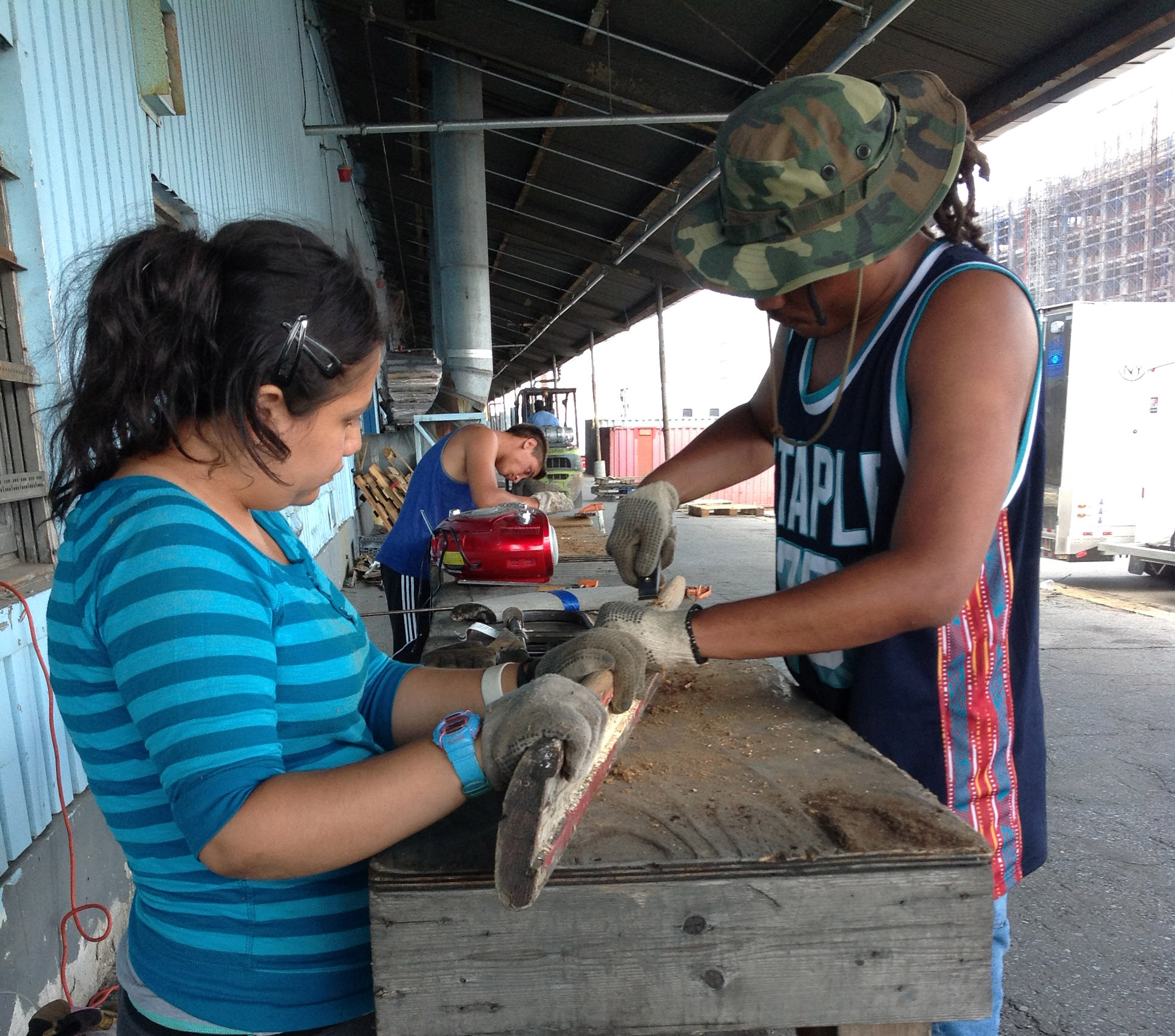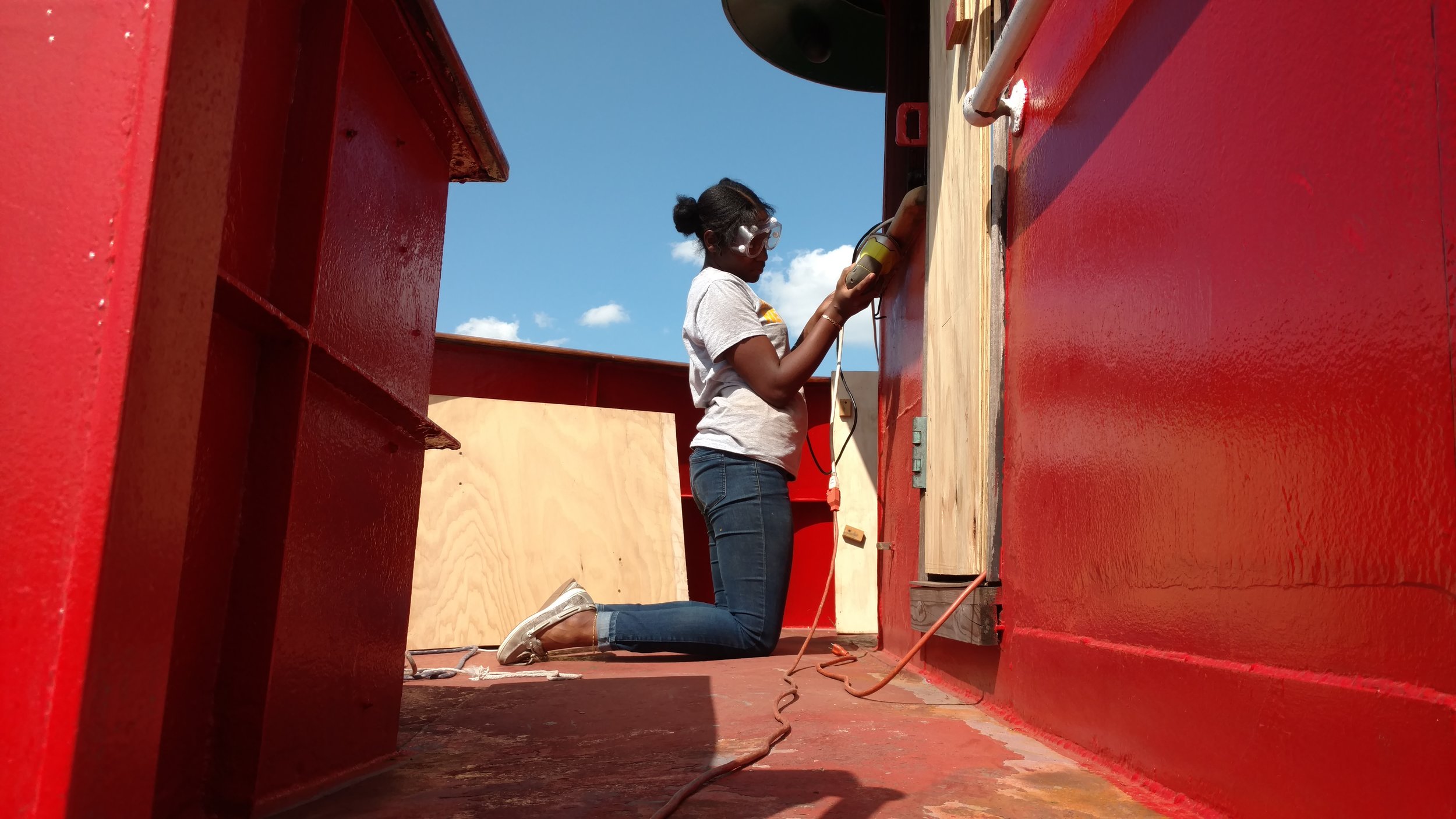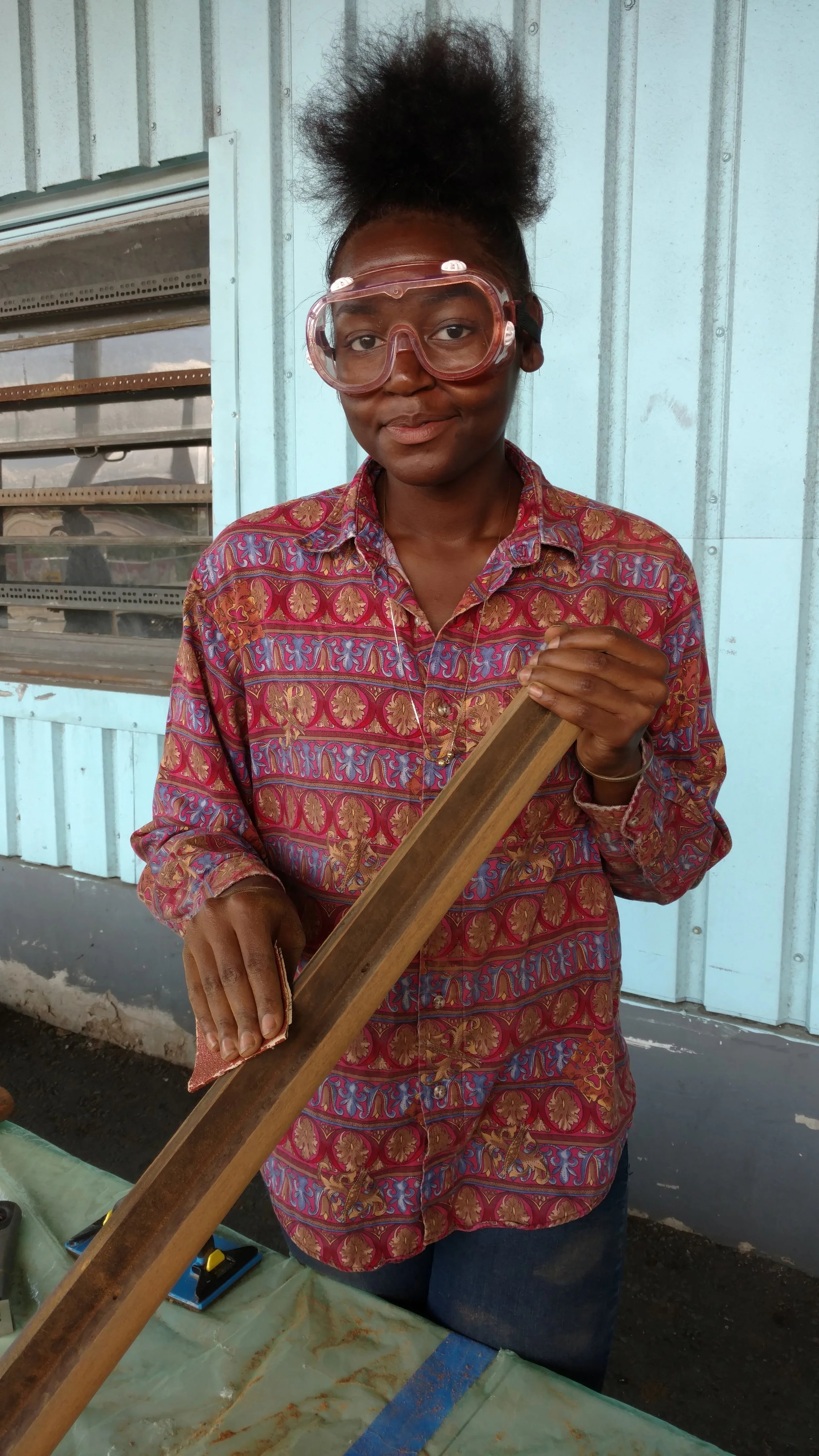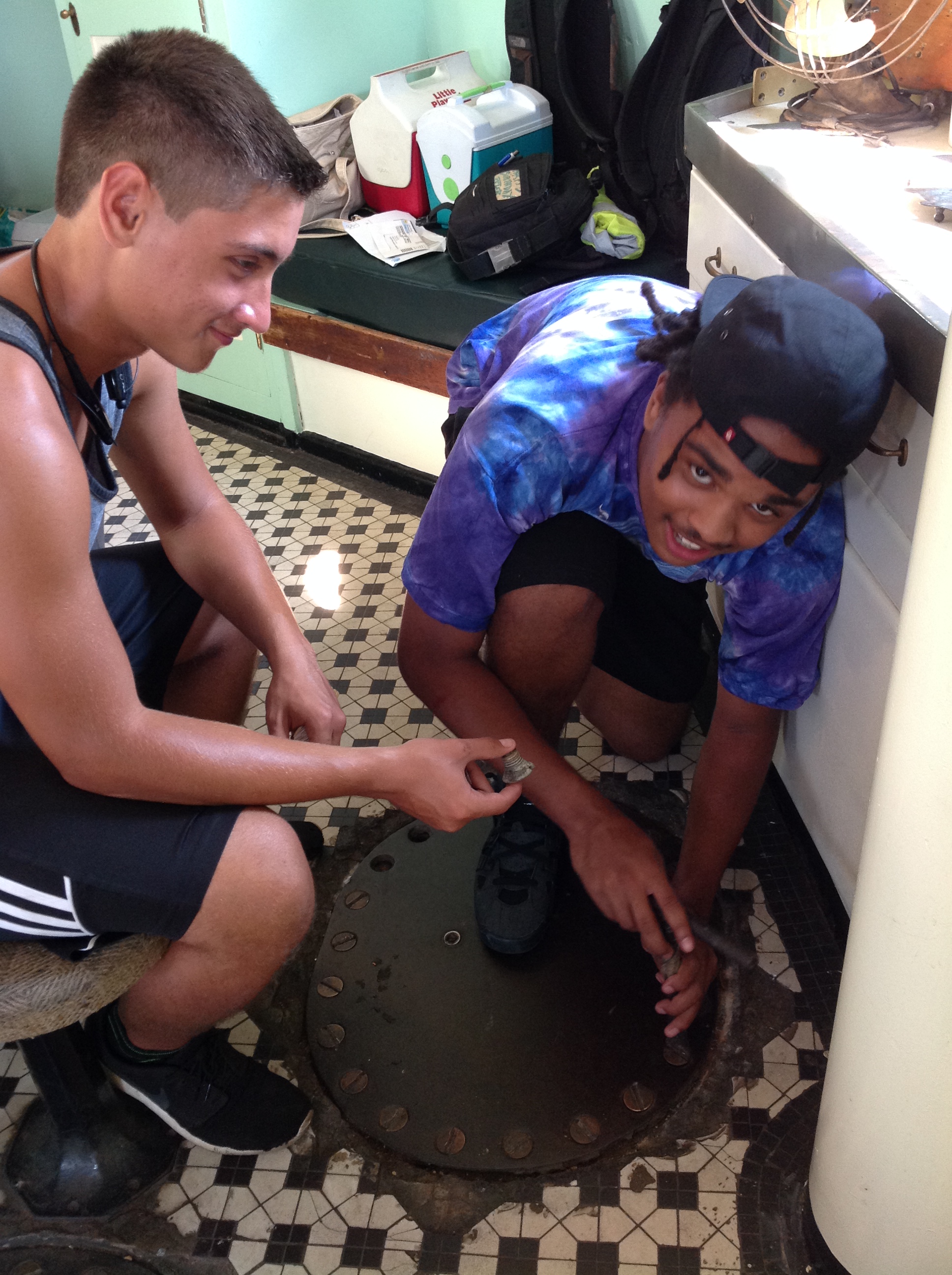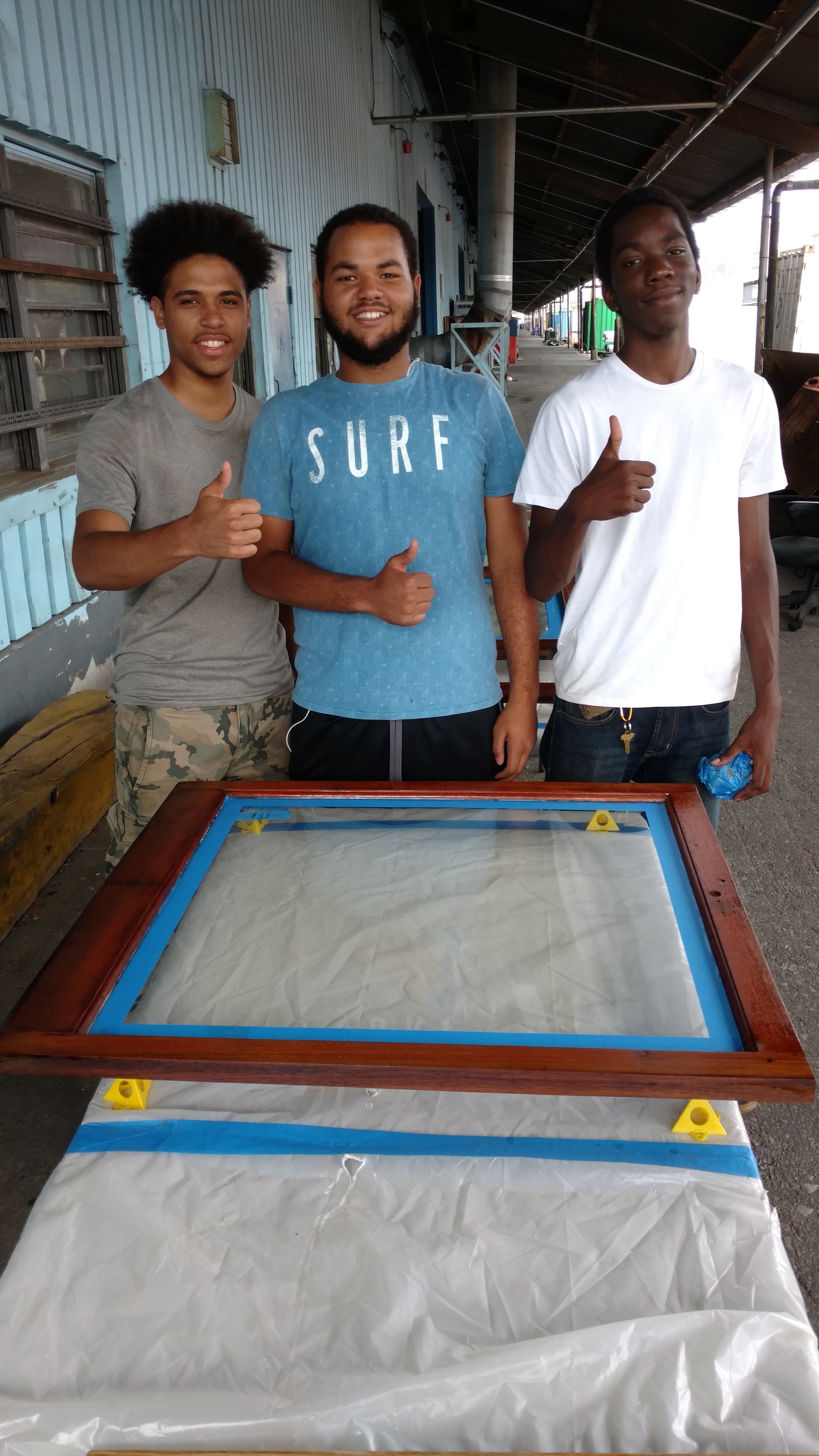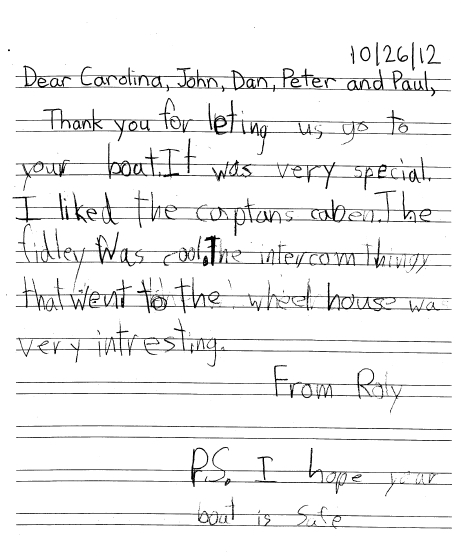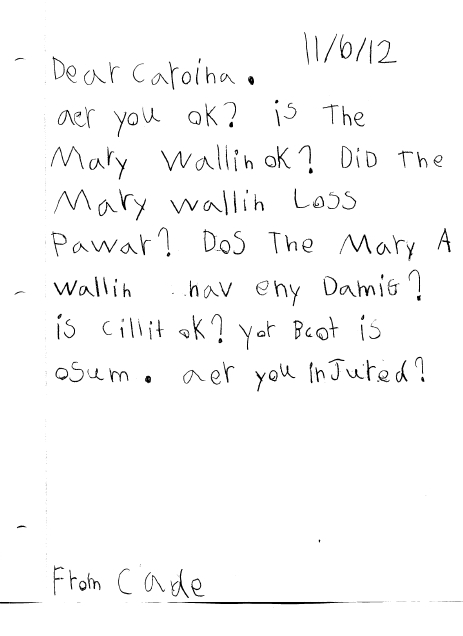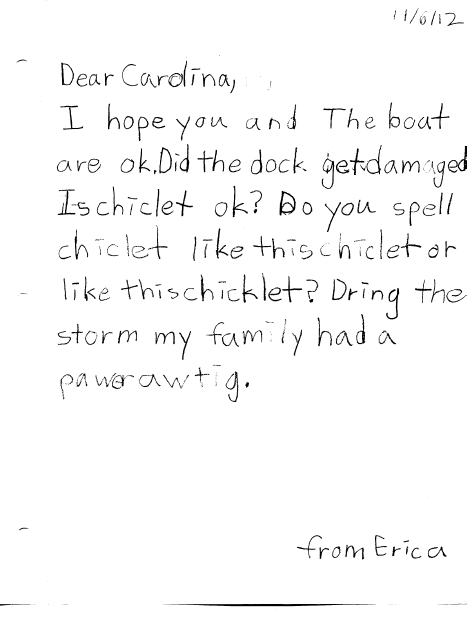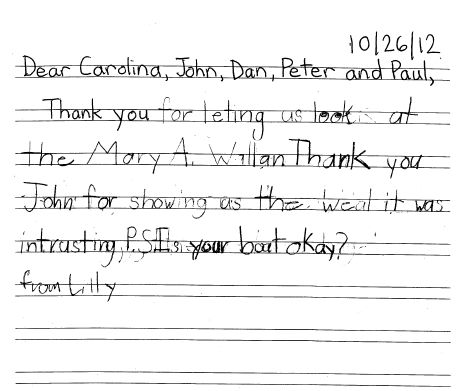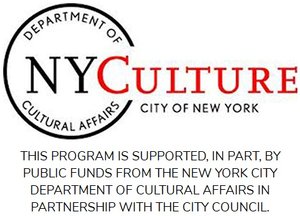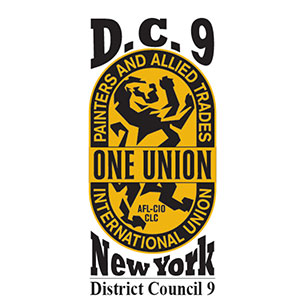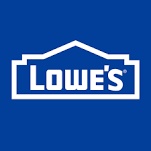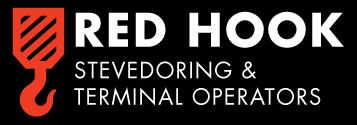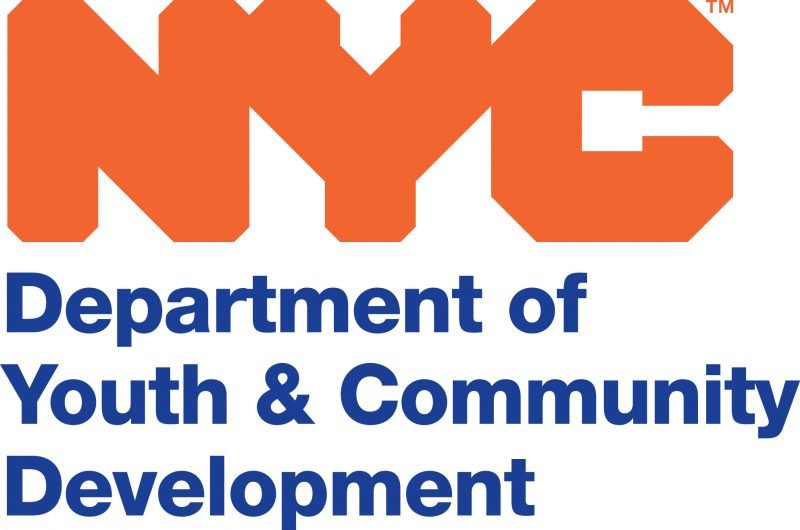Education of youth and adults
PortSide NewYork educates school students, AND we believe education is a life-long process; so we also educate adults, policy makers and the media about the waterfront.
We call our programs WaterStories not “maritime” because
“maritime history,” until recently, tended to focus on the ship as a thing and stories of its leading characters (naval architect, Captain), voyage narratives and battles, and less on lower-ranking ship crew and maritime’s whole impact on society in all its aspects (economy, culture, immigration, shoreline changes, etc).
maritime education is often presented as just STEM (science, technology, engineering, math)
Our interdisciplinary approach
We use an interdisciplinary approach because, on an urban waterfront such as NYC’s, the human story plays a major role. NYC’s harbor story is not just marine life and ecology. During the pandemic, the term “coastal history” grew as a term in academia around the world thanks to virtual symposia; PortSide’s WaterStories are closely aligned with that, and we are part of the Coastal History Network.
PortSide’s interdisciplinary approach includes history (including Black, women’s and immigration history), sociology, urban studies, art and literature, current resiliency issues, even cat WaterStories in honor of our ship cat Chiclet and because cats rule the internet. We also have young students create art and illustrate books we make with them. All this increases engagement and shows the how the harbor is related to many aspects of the past, present, and future - and shows youth how they can be actors in this space and have a civic voice. The PortSide teaching method is compelling to kids in the ways described in the image below.
Place-based education
We create WaterStories programs on and about the ship MARY A. WHALEN, and about the waterfront that bring multiple themes to life. We do “place-based” education using the city and its harbor as classroom content.
Tying lessons directly to place makes the content more vivid and relatable and inculcating how to learn from the world which fosters a practice of life-long inquiry and self-education.
Place-based education often enables a tie-in to current issues, allowing for advocacy education and a connection to civics education, and establishes that science is relevant by showing how it articulates environmental justice issues, climate change, etc.
Our inventive team creates programs in response to your needs. That helps us grow our continually evolving programs!
We work with diverse groups of all ages. Our range includes elementary, middle and high school, college and graduate school, Fulbright Scholars, Title 1 public schools and elite private schools from NYC, out of state, and abroad. We have helped teach college professors.
We curated a massive selection of #eWaterStories programs during the pandemic, resources for teachers, adults, families.
PortSide uses our historic ship, the coastal oil tanker MARY A. WHALEN, and waterfront locations to teach via place based education. Since the tanker distributed fuel up and down the coast from Virginia to Maine from 1938 to 1994 with several waves of immigrant groups as her crew, she is a great platform to discuss fuel consumption and energy sustainability issues, as well as coastal history, urban studies, marine science, ethnic studies, STEM programs of several types and maritime training.
Our site is exciting because we are NOT in a park! Come here to be immersed in an authentic maritime place. We are surrounded by real working waterfront. Cruise ships, container ships, ferries, a tall ship - boats coming and going and some under repair - AND an active NYC Ferry dock. PortSide has a floating dock, rowboat and kayaks. Our Atlantic Basin location also has significant marine life (fish, shore birds and waterfowl) and a slice of wild urban habitat where urban botany can be studied.
Highlights of programs
Youth education programs on and off our ship
Saba Mahmoud, a Pratt graduate student created a community flood prep flyer here.
The Spring 2024 Pratt Participatory Planning Class studied Red Hook and created a planning toolkit for the community and PortSide. Get it here.
This blogpost about programs with PS 676 shows our method and impact. We inspired PS 676 to become Brooklyn’s 1st maritime elementary school after just a semester and a half of our programs. In 2021, the DOE started transitioning PS 676 to become NYC’s 1st maritime middle school.
During the 2022-2023 school year, PortSide pivoted to focus on Red Hook’s remaining public elementary school PS15, thanks to $115,000 in federal DOE funding from Congresswoman Nydia Velazquez. With PS15, we created four modules of curriculum we can use with your school.
Unit 1: Puerto Rican Red Hook WaterStories
Unit 2: Simple Machines (Upper/Lower grade lessons)
Unit 3: Sound+ light in maritime context (Statue of Liberty, buoys, signal flags, Mary Whalen bell + jingles, buoy scavenger hunt)
Unit 4: Whales
Prior Summer HS internships with WHSAD show how we use ship restoration as a means for youth development
We offer community service projects to schools.
Summer internships and adult job training are covered below and offered here.
Our growing virtual museum Red Hook WaterStories turns the peninsula of Red Hook into a teaching tool, and we use it as the basis for curriculum. This tells NYC maritime story in microcosm. We can develop related curriculum with you.
Education programs with our neighbors (see photos below): We work closely with schools in Red Hook and nearby.
Specific programs
African American Maritime Heritage Program
PortSide’s African American Maritime Heritage (AfAmMH) program has elements for students and the general public. This program encompasses stories of black achievement, struggles against the sea, struggles against racism, and aspects of daily life and work (it’s not all derring-do) around the country. This part of the African American story is largely forgotten, even though some of these stories were famous in their day.
Simple Machines on the MARY A. WHALEN
Teaching simple machines is part of New York City elementary school curriculum. PortSide created a program that blends a TankerTour with learning (and finding) simple machines on the ship. This has a scavenger hunt for simple machines, a ship vocabulary list and ship plan. It’s a captivating maritime experience where all the simple machines can be touched, that teaches new words, and teaches how to read and see spatial relations in an architectural drawing. Students get a certificate inspired by papers that document sea time worked by professional Merchant Mariners.
PortSide's "Simple Machine" machine
PortSide's Simple Machine Machine is a mobile interactive exhibit which provides a fun and physical teaching experience with an inclinded plane, pulleys, screws and levers as found in the maritime world. Educational and entertaining, this program is suitable for the classroom, science fairs and street festivals or can be run on the deck of the MARY A. WHALEN or the pier alongside the ship.
Hurricane Sandy & Resiliency
PortSide added resiliency education in terms of water issues after Sandy. PortSide's Sandy prevention and recovery work won us a White House award for Sandy recovery and honors from the NYS Senate. Our ED Carolina Salguero was appointed by the Governor’s office to Red Hook’s NY Rising committee, New York State’s program to make communities around the state more resilient. PortSide has a lot to offer regarding resiliency including marine weather, causes of flooding, preparedness and emergency response. See Resiliency 101 in our virtual museum content we can repackage according to age level. Note that you can get local weather and AQI from the Davis weather station we have on the Mary Whalen, go here, and you get more data if you download the free Davis Weather app. Curriculum examples:
We taught hurricane Sandy to Bed Stuy 3rd graders in conjunction with the non-profit "Behind the Book."
During 2020, we worked with Columbia University’s graduate program in historic preservation working on a resiliency studio; their final report is an asset to Red Hook.
March 2022 we ran a pilot high school resiliency program.
In 2023, we worked with Saba Mahmood, a Pratt graduate study focused on Red Hook resiliency, and she created the flood prep pamphlet here and sent this to local schools.
In 2024, we created a HS earth science & resiliency curriculum aligned with NYS standards about earth sciences that also includes resiliency and interdisciplinary issues and uses Red Hook for content. We created this with local teacher John Russo. If your school would like a license to use this, please email us here.
"Look who's here!" Inventory of Red Hook waterfront wildlife
PortSide is growing content relating to Red Hook waterfront wildlife. We are growing an inventory of wildlife living in, on, and near the Red Hook waterfront, starting with Atlantic Basin and documenting what lives next to, and attached to, our ship MARY A. WHALEN. See photos and videos on the Critters page in our e-museum. We have a Billion Oyster Project basket. Emma Garrison, a Citizen Scientist from the Gowanus Canal Conservancy set us up with some man-made, in-water habit.
Opportunities for you to get involved:
Help build floating habitat so newly hatched water birds can get out of the water, protecting them from hypothermia and predators. Atlantic Basin is surrounded by bulkheads (walls) so young birds cannot get out of the water until they can fly. Read the Patch article about the duck wars over our floating dock. We call this DuckNYC, punning on the City program DockNYC that is our landlord.
Dockbuilder Math
This class can be provided on our ship the MARY A. WHALEN, on the waterfront, or in a classroom, and can be tailored to students from elementary to high school age. An exploration of math via maritime workplace examples, the class brings life to the subject and can be taught using simple math or real-life trigonometry problems. Hands-on elements, such as tools, sections of wood piling and safety gear, have proven to be a great hit with students and teachers alike. Whether you are looking for a show-and-tell for first-graders or to understand the calculations of basic barge design (eg, what floats your boat) this program can be configured for you.
Maritime 9/11
PortSide NewYork produced an exhibit on the mariner's response to 9/11 and installed this on another historic ship, the LILAC, in Manhattan. PortSide has saved the components of this exhibit to repackage the content into a traveling exhibit that can go to schools or libraries. Get in touch if this interests you. We continue growing the content and are recognized content experts.
Teaching college students
PortSide has provided quality internships for interns from colleges that include CUNY, Pratt, Princeton, Yale, and Brown, as well as students from Germany and Spain. We have worked with several colleges that have used the ship for classes as varied as museum exhibit design, city planning/waterfront policy and American Studies. Spring 2020, we worked closely with Columbia University’s graduate Historic Preservation program and gave them this in-depth 3 hour tour of Red Hook, participated in crits and Zoom consultations. We are sure their final report will help Red Hook. We have also given lectures on campus and partnered with Pratt Institute urban planning classes.
Teaching college professors
PortSide worked with a City Tech program Along the Shore which trains college professors in how to use place-based education when teaching their students. This program brought community college professors from around the country to study Brooklyn's Industrial waterfront. We outlined for the professors how the MARY A. WHALEN could be a teaching tool. At that point, "place-based education" was a newish concept for those professors; it is central to PortSide's MO.
JOB TRAINING
PortSide has offered, until the DOE cut funding for it, summer preservation internships to a CTE high school, the Williamsburg HS of Architecture and Design (WHSAD). This program teaches life skills as well as job skills.
The MARY A. WHALEN has been a training site for adults - the painters union District Council 9.
PortSide trains adult volunteers in shipwork. They then seek work in the marine field or the trades, and we help them find work in the maritime industry. Over the years, we have also referred adults to maritime companies that could hire them.
PortSide is in discussions with a program that offers classroom training for Merchant Marine licenses; and once we have building space, we can host such classes by their certified instructors. We are also talking to local maritime training institutions to see if they can use our ship to train their students. Stand by for updates.
Below are letters from 1st graders from City & Country school who visited us a few days before hurricane Sandy. Their letters show the deep impression the visit to PortSide made.


